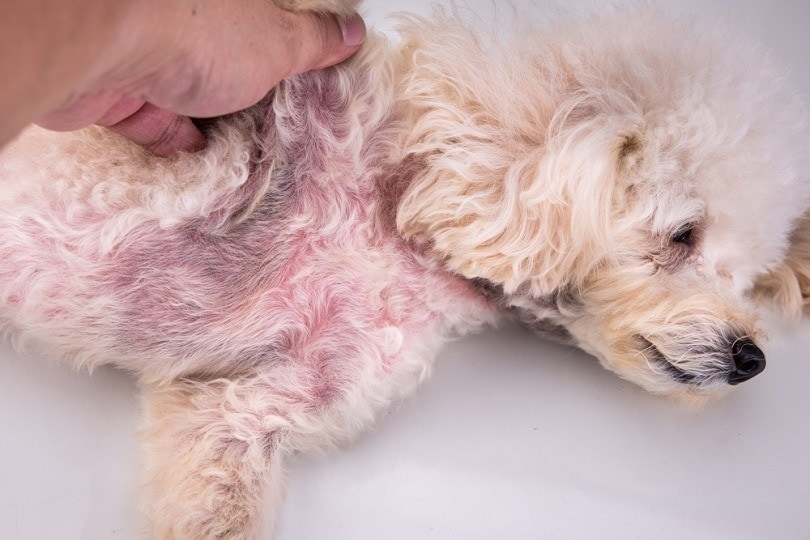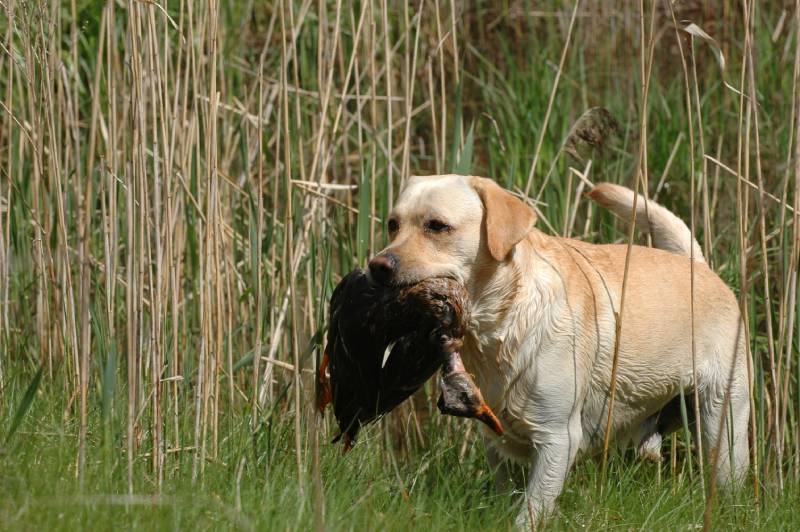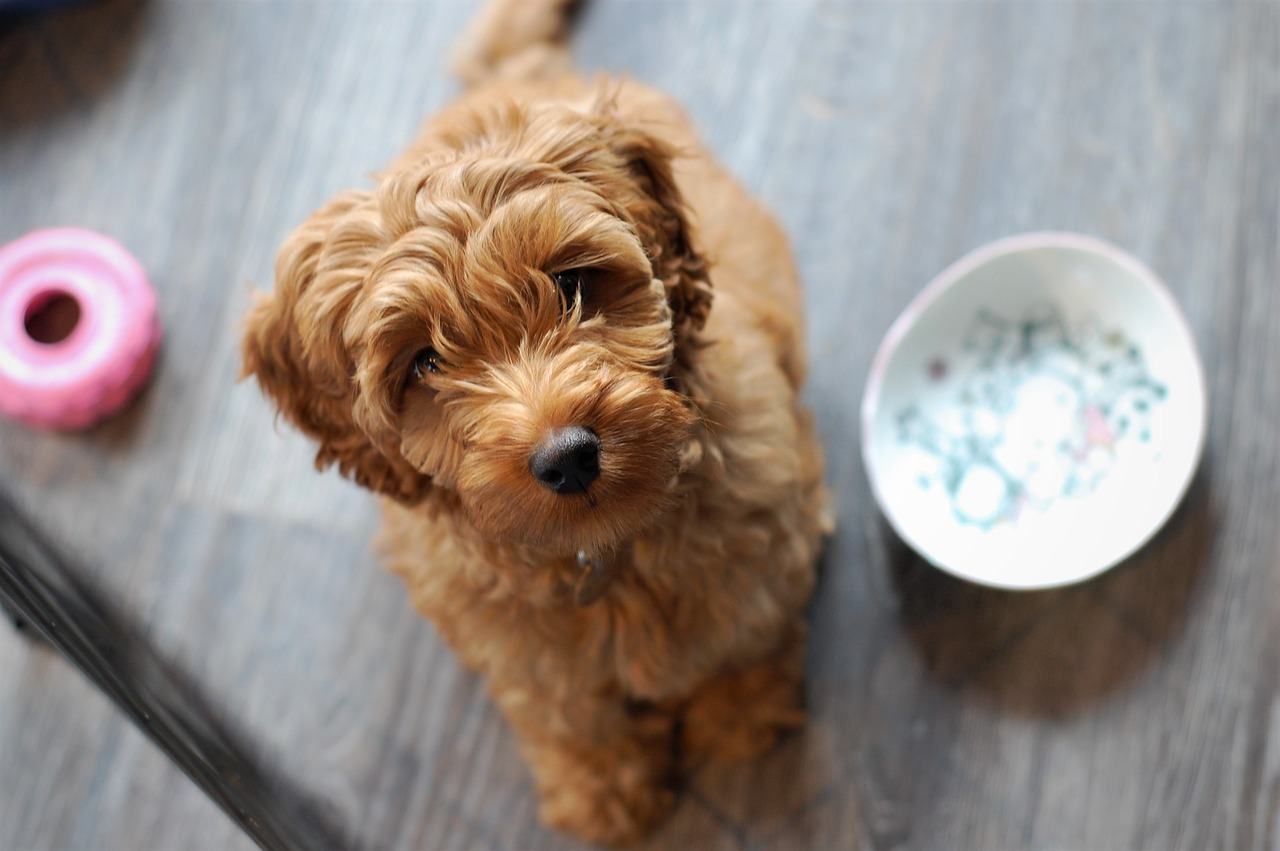How Much Do Corgis Shed? What You Need to Know!
Updated on
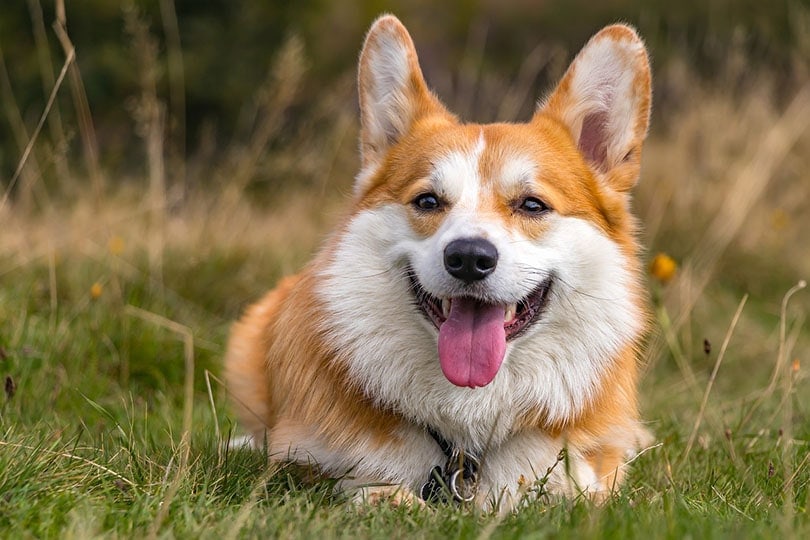
Nobody wants to deal with lots of dog hair, and it can even be a factor that stops people from getting a certain dog breed. The corgi’s coat is a little more manageable than most, but they do tend to shed a fair bit.
Corgis are considered moderate to heavy shedders, as they lose hair daily. However, their fur is soft, and they do not leave spiky hairs as some dog breeds do.
If you are curious about how much corgis shed and if it is manageable for you, then this article will give you all the information you need.
Do Corgis Shed a Lot?
Corgis are moderate to heavy-shedding dogs, and they are not hypoallergenic. Corgis shed enough that it can be noticeable on your furniture and clothes when you handle them. You might also have fur on your hands after petting them, but it is usually not very noticeable if they are regularly brushed. The amount of hair corgis shed will depend on how regularly they are groomed as well as the season, but you will notice new hairs every day even if you have cleaned or groomed them.
Corgis are a double-coated dog breed, and their fur changes at least twice a year, mainly during the spring when they begin shedding their winter coat. Both Welsh Pembroke and Cardigan corgis have medium-length coats, but all corgis will have a thick and coarse top layer of fur with a dense undercoat underneath that sheds and regrows constantly.

Factors That Trigger Shedding In Corgis
Even the most well-groomed and healthy corgi will shed, but factors like stress, seasonal changes, and certain skin conditions can make the shedding a whole lot worse.
- Skin conditions: Certain skin conditions such as skin infections or dry and itchy skin can make your corgi lose more fur than usual.
- Allergies: Skin issues from dietary allergies, certain shampoos, and conditioners, or even from something around the house can leave your corgis skin feeling dry and irritated, which can lead to increased shedding.
- Stress: Stressful events and sudden changes can cause your corgi to shed more due to a spike in the stress hormone known as cortisol.
- Nutrition: The wrong diet can lead to poor coat and skin health, and ultimately cause your corgi to shed more fur.
- Shampoo: Harsh and drying shampoos can irritate your corgi’s skin and fur, and the constant skin irritation will not benefit your corgi’s coat health.
- Seasonal changes: Corgis will go through a blowout period where their fur is shed for summertime.
- Health: Health conditions such as rashes, infections, and Cushing’s disease can cause bald patches on your corgi from excessive fur loss.
How Often Do Corgis Shed?
Corgis shed throughout the year and lose fur daily, but most of their heavy shedding is done twice a year. During spring and autumn months, you will notice an increase in the amount of fur they lose. Their coat will be prepared for the hotter months in summer when they will lose their thicker winter coats, but at the end of summer, their coats will start preparing for the colder months.
When corgis are getting rid of their winter coats, they will go through a “blowout” period where their coats naturally shed over a few weeks to thin their coat for summer.
You will find more furballs lying around the house, or small clumps of fur may stick to your hands when you pet them. This is when you will need to brush your corgi more often with a de-shedding brush and it will help keep the amount of fur they lose under control.
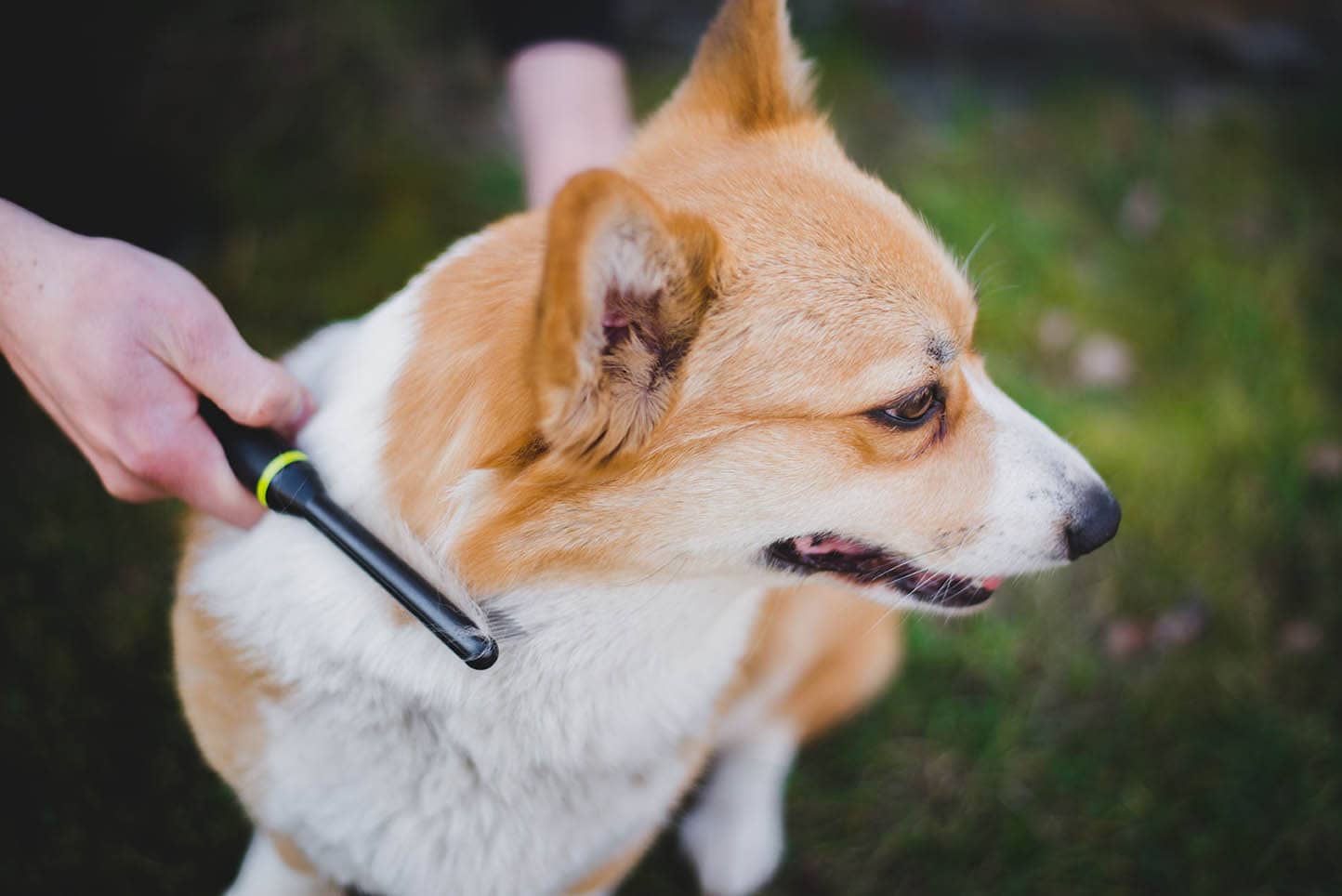
5 Tips for Managing Shedding in Corgis
Although you will never be able to stop your corgi from shedding, finding a good grooming routine, stress management, and the right diet can help keep your corgi healthy and help prevent any excessive fur loss.
1. Regular Brushes
Brushing your corgi a few times a week is ideal if you want to remove clumps of loose fur that would otherwise fall out around the house. Using a de-shedding brush is a good choice for corgis since these brushes will help to reach both their undercoat and topcoat to remove excess loose fur. You should ideally brush your corgi around four times a week and make sure to clean the brush in between.
2. The Right Diet
A healthy and balanced diet will ensure your corgi is receiving all the vitamins and minerals they need. Certain vitamins and minerals are great for their coat and skin health, which can help improve the condition of their fur. Foods rich in omega-3 fatty acids from fish oils are an excellent choice because they can help nourish your corgi’s skin and coat.
3. Health Checks
Certain underlying health conditions may cause your corgi to shed more, usually due to dry skin problems. If your corgi is constantly scratching and has rashes or bald spots, speak to your corgi’s veterinarian about treatment to help manage the excess fur loss.
4. Shampoo
Certain shampoos can be harsh on your corgi’s skin and fur, especially if it contains chemicals that can be drying. These types of shampoos can strip your corgi’s coat’s natural oils and disrupts their skin pH balance, leading to dry and itchy skin. Make sure that the shampoo you use for your corgi is suitable for their skin and fur and avoid using harsh cleansing shampoos.
A pH-balanced dog shampoo that is balancing and moisturizing while containing a few harsh chemical-based ingredients is a better option.
5. Stress Management
Surprisingly, stress can play a role in the amount of fur your corgi sheds daily. Some dogs may lick and scratch as a manifestation of anxiety or stress toward a situation. It is important to ensure your corgi is kept stress-free, as this is beneficial for both their health and normal body functions, including their coat health. Speak to your corgi’s veterinarian about managing your dog’s stress or separation anxiety if you feel that they are showing signs of stress.
Final Thoughts
If you are looking for a dog that doesn’t shed much, a corgi probably isn’t a good option for you. Corgis are known to be moderate to heavy shedders and they will always lose fur throughout the day. Their fur loss will be more noticeable during the spring and fall when they experience seasonal shedding, but overall, they will shed their double coats year-round.
Corgis are a loving and affectionate dog breed, and even though they shed, this can be managed with the small hints outlined above.
Featured Image Credit: Ozsvathcsilla, Pixabay


